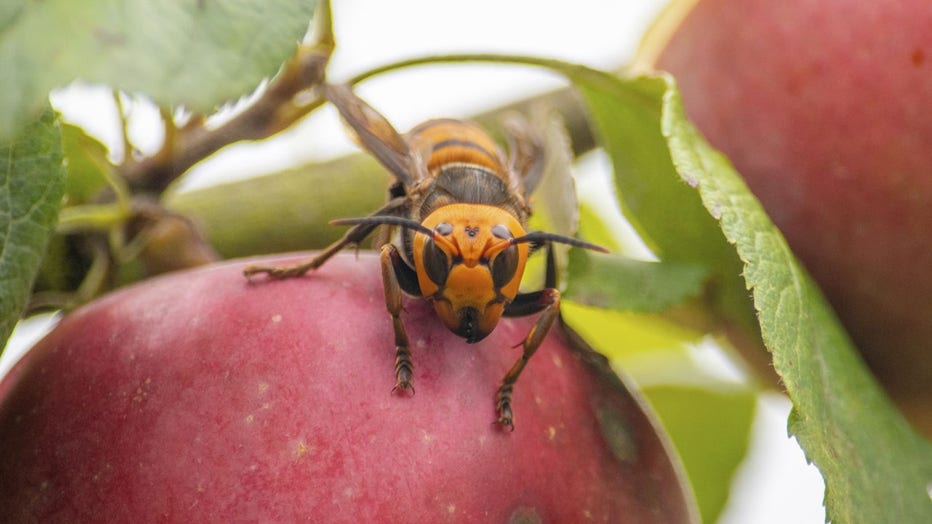Murder hornets declared eradicated in US, officials announce
Local lab takes closer look at 'murder hornet nest zero'
Agricultural Research Service Entomologist, Matt Buffington, joined us with information on local research being done on the ‘murder hornet next zero’ found in Washington state.
WASHINGTON - The murder hornet, the world's largest that’s known for its painful sting and capability to destroy a honey bee hive in hours, has been declared eradicated in the U.S. The news comes five years after their initial sighting in Washington state near the Canadian border.
The Washington State Department of Agriculture and the U.S. Department of Agriculture announced the eradication on Wednesday, saying there have been no sightings of the northern giant hornet in Washington since 2021.
READ MORE: Relative of the 'murder hornet' found along East Coast in US for first time
This success is a sizable success, involving community efforts like placing traps, reporting sightings, and scientists capturing live hornets, tagging them with tiny radio tracking devices, and locating nests. Experts destroyed the nests just as queens were starting to emerge.
The hornets, also known as Asian giant hornets, can reach lengths of 2 inches. They gained worldwide attention in 2013 when they killed 42 people and injured 1,675 in China. In the U.S., about 72 people die from bee and hornet stings annually, according to the National Institutes of Health.
READ MORE: Don't worry! The 'murder hornet' is not expected to make its way to the DC region
First detected in North America in British Columbia, Canada, in August 2019, the hornets were confirmed in Washington state in December 2019.
Experts suggest the hornets may have arrived in North America via plant pots or shipping containers.

Northern Giant Hornet (Murder Hornet) (U.S. Department of Agriculture)
What is the Northern Giant Hornet (Murder Hornet)?
The northern giant hornet (Vespa mandarinia) is the largest hornet in the world, measuring up to 2 inches long. This invasive species, native to Asia, generally doesn't attack people unless it feels threatened. However, it poses a grave threat to honey bee hives, which it can destroy within hours.
The pest preys on honey bees and poses an indirect threat to plants that depend on honey bees for pollination. The northern giant hornet was first reported in the Vancouver Island area of Canada in August 2019 and has since been detected in the northwest corner of Washington State. If it spreads to other U.S. States, it could adversely impact honey bees and the pollination services they provide.
Information from usda.gov
The Source: The Associated Press, U.S. Department of Agriculture, and FOX 5 reporting

